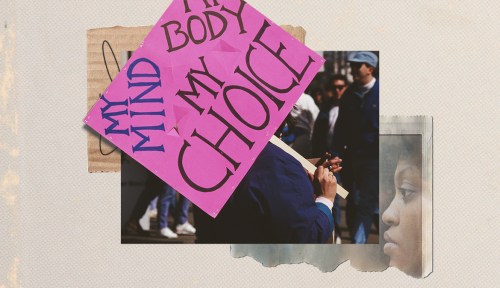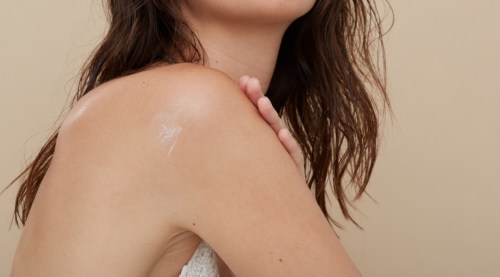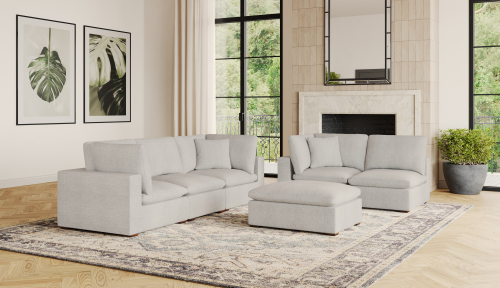Access to abortion is a human right, a public-health issue, and a social determinant of health that directly impacts a person’s health outcome and quality of life. That access allows pregnant people to do what is best for their mind, body, spirit, and soul. And despite Roe v. Wade having been overturned, abortions will not stop, but they will be stopped from happening safely. The effects of this reality are undoubtedly alarming for all but would be felt to a disproportionate magnitude by historically excluded communities, like Black, Indigenous, and people of color (BIPOC); LGBTQ+; and people with disabilities.
Roe v. Wade federally legalized abortion, specifying that states could not ban abortion before a fetus’s viability outside the womb (or before 24 weeks gestation). Overturning the landmark 1973 decision returns abortion to being solely a state issue. And according to the Center for Reproductive Rights, this could result in 23 states banning abortion immediately.
This would mean forcing unwanted pregnancies in a country with no paid maternity leave, no subsidized or free child care, a lack of comprehensive mental-health support, unfair stereotypes for women in the workplace who have children, and one of the highest maternal mortality rates for a developed nation—a rate that is three to four times even higher for Black people.
To understand why racial disparities factor in to the effects of Roe v. Wade overturning, we must understand the concept of intersectionality, a term coined by Kimberlé Crenshaw in 1989 to describe the compounding levels of discrimination Black women experience. For example, I am Black and a woman; I am always these two identities, as I cannot separate them. Society always sees me as both, due to racism, oppression, and white supremacy. This has resulted in unfair and subpar treatment in medical settings and limited access to care.
Alternatively, white women—who can be white or a woman—have the privilege of separating identities to receive more benefits from the white dominant culture, like access to quality health care. Intersectionality can apply to a number of compounding marginalized identities, including having a lack of wealth and being a member of the disability community, among many others.
The overturning of Roe v. Wade will exacerbate systemic inequities, resulting in further criminalization, imprisonment, morbidities, loss of employment, and even death of women.
Notably, members of the white dominant culture receive the most abortions at 39 percent, followed by 28 percent for Black women, and 25 percent for Hispanic women, according to 2014 data from the Guttmacher Institute. More than anything, this is a reflection of access white women have, no matter what, to choices they want to make. In 1968—five years prior to the Roe v. Wade ruling—the Jane Collective was created in order to arrange abortions and counseling for women who were mostly white and privileged. Around 11,000 abortions were arranged without one fatality. Although the Collective did have run-ins with the police (again, the abortions were not legal), being a white-led organization contributed to access to safe abortions and mental-health support.
The point? Based on historically backed evidence, we have reason to believe that privileged people—and in this case, namely wealthy white women—will have access to safe abortions, regardless of what the law stipulates. But that’s a privilege BIPOC folks no longer necessarily with Roe v. Wade being overturned.
A lack of access to safe abortions will only reinforce racial disparities and systemic inequities already in place—like limited access to education, income, safe housing, comorbidities, language barriers, and employment arrangements that provide limited access to health insurance and health care. The overturning of Roe v. Wade will exacerbate these inequities for BIPOC people, resulting in further criminalization, imprisonment, morbidities, loss of employment, and even death of women.
Bear in mind that women of color are more likely to reside in states with more restrictive-leaning abortion laws. And, according to 2014 data, 75 percent of abortion patients either had an income below the federal poverty line or were designated as having a low income, making abortion cost-prohibitive. Especially if accessing an abortion—even a medically necessary one—requires traveling across state lines, a person must first find transportation, which costs time and money. Neither time nor money are readily available resources for a number of folks on a limited income or without the privilege to take time off work.
And while the overturning most imminently impacts BIPOC women, it indeed lays the groundwork for effects that curtail the rights of so, so many more. Civil rights are on the table and at risk for all—but especially for BIPOC people, LGBTQ+, and people with disabilities. So, what can we do?
We all need to speak up—but especially men, whose bodies are not controlled and legislated around and against the way women’s bodies are. But no matter your gender, identity, or background, now is the time to use your voice and be an accomplice to all the people who are at risk of losing agency over their body and, by proxy, livelihood.
With abortion access now a state issue, elected state representatives will be the decision-makers for how access unfolds, state by state. Abortion bans are not pro-life—they are pro-oppression.
Oh hi! You look like someone who loves free workouts, discounts for cutting-edge wellness brands, and exclusive Well+Good content. Sign up for Well+, our online community of wellness insiders, and unlock your rewards instantly.
Sign Up for Our Daily Newsletter
Get all the latest in wellness, trends, food, fitness, beauty, and more delivered right to your inbox.
Got it, you've been added to our email list.











